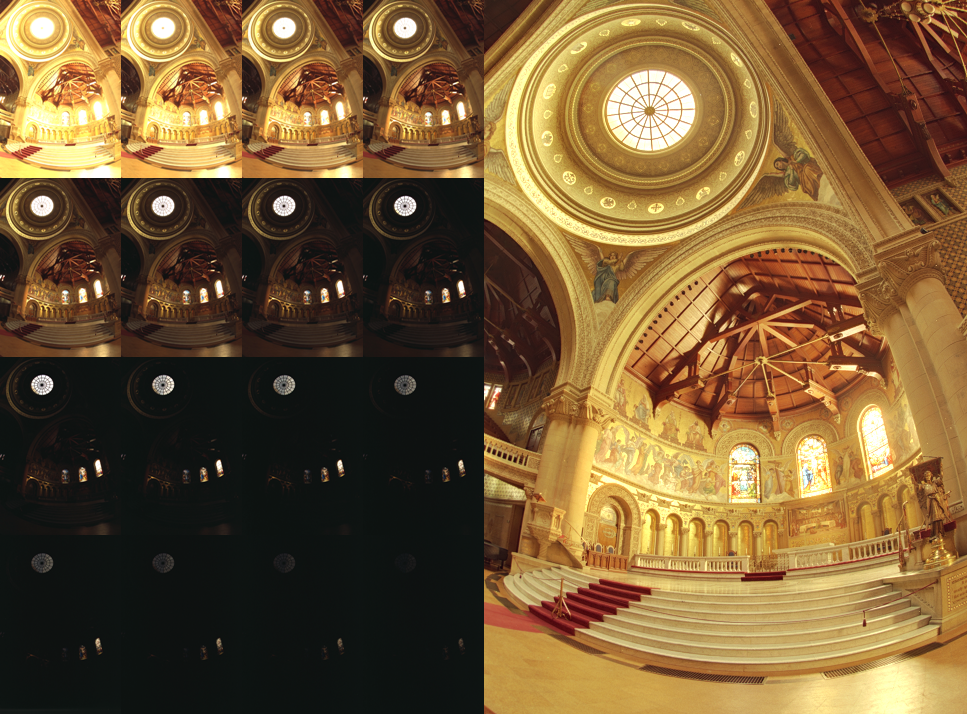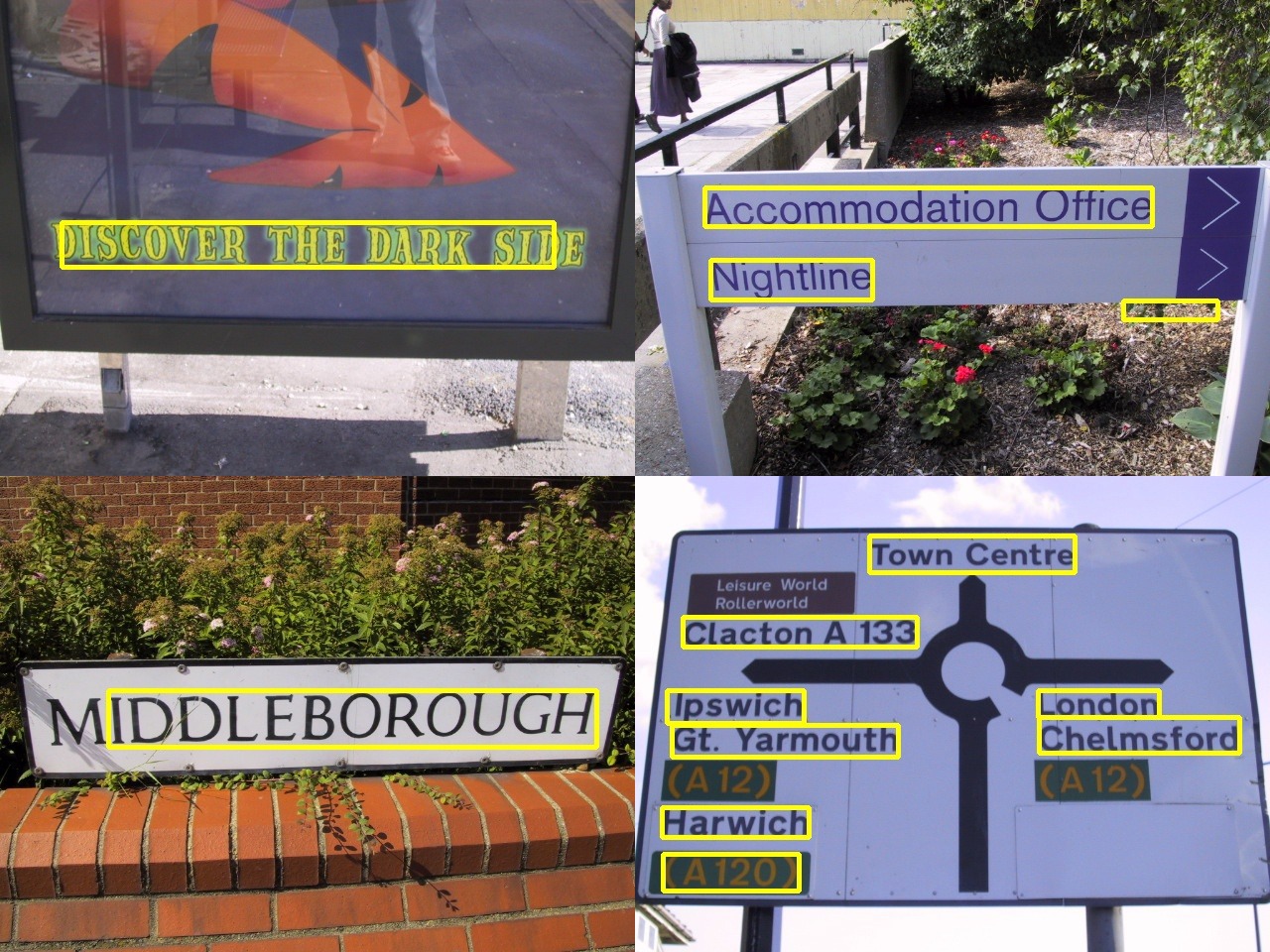OpenCV participates in Google Summer of Code 2014
Hooray! Google Summer of Code organizers accepted the OpenCV project to participate in Google Summer of Code 2014 ! Since March 10, began accepting applications from participating students. Let's see what it is - GSoC, what kind of project OpenCV is and what does Itseez have to do with it. And for starters - a motivating video with the results of last summer.
Let's start with OpenCV. OpenCV is an open library of computer vision algorithms, actively developing by community forces and a multitude of large and small IT companies. Being an open project, OpenCV is interested in expanding the community of users and developers, and the Google Summer of Code initiative is one of the tools for its development.
Google Summer of Code is a Google program that offers students and graduate students from all over the world to take part in the development of an open source project and receive a scholarship for it. The traditional time of the project is summer holidays, when most students are free from classes and can devote their free time to the project they like. The list of projects for the summer, as the name implies, says Google. The OpenCV project was selected for the fourth time and opened the door to participation.
With the project OpenCV and the initiative of Google figured out, what does Itseez have here? As you know, the development of the OpenCV library began by Intel. After some time, as is often the case with non-core projects, the corporation lost interest in the project, made it open and gave it to the community for development. Some of the engineers at Intel who worked on the library and those who disagree with this decision created their own company and continued to develop. Ever since then, Itseez has been developing and supporting the development and prototyping tool for computer vision applications, much loved by many. More information about the history of the company can be found in this habrastia.
')
But back to Google Summer of Code. The main group of project developers, as well as a significant part of OpenCV mentors are located in Russia, and more precisely in Nizhny Novgorod. This provides a good opportunity for Russian students and graduate students to participate in GSoC 2014, even if you are not very confident in your knowledge of English. In addition, if you have a good idea and are ready to become a mentor, it is not too late to join the program.
What happens in the development of the library, what others have done, and how can you be the one who is different?

High Dynamic Resolution (HDR) Imaging - technology to increase the dynamic range of brightness of images. Modern photographic technology has a fairly small dynamic range of brightness. Algorithms for constructing HDR images and subsequent tone adjustments are designed to compensate for the shortcomings of the equipment. According to the results of the GSoC 2013 summer school, the implementation of several such algorithms was added to the library. Next summer, we plan to continue the development of computational photo algorithms and implement the new HDR, color balancing, tilt-shift, and even automatic comic generation algorithms that have appeared over the year.

During last year’s summer school, a robust algorithm for searching texts on images was added to the library, which can be useful when implementing OCR or any other tasks of searching and recognizing characters and pointers. This year, the topic of text detection was not included in the list of stated tasks, but there are a number of other detection algorithms: Softcascade detector and pedestrian detector proposed by the team of Piotr Dollár.
Every year, the tasks of processing data from the depth sensors and RGBD sensors are gaining momentum. Contributes to the deeper penetration into our lives of inexpensive depth cameras. Recently, such a module reached smartphones. In OpenCV, there are already some developments in this area, including the Viz visualization module implemented last summer. By the way, a separate article on habr will be devoted to this module. In the new season, the library is invited to add a number of basic algorithms for processing three-dimensional point clouds and expand the possibilities of 3D visualization.
In the summer session of 2013, we were able to implement full OpenCV wrappers for Matlab and, potentially, its free analogue of GNU Octave, which are very popular in academic circles. This year, we propose to work on expanding buyindings to popular programming languages, in particular, support for CUDA and OpenCL optimizations in Python.
This is not a complete list of the works that we managed to do last summer and have to be done in 2014. A complete list with mentor contacts can be found on the project wiki . If you are studying at a university and want to participate in the development of your favorite library - join !
Let's start with OpenCV. OpenCV is an open library of computer vision algorithms, actively developing by community forces and a multitude of large and small IT companies. Being an open project, OpenCV is interested in expanding the community of users and developers, and the Google Summer of Code initiative is one of the tools for its development.
Google Summer of Code is a Google program that offers students and graduate students from all over the world to take part in the development of an open source project and receive a scholarship for it. The traditional time of the project is summer holidays, when most students are free from classes and can devote their free time to the project they like. The list of projects for the summer, as the name implies, says Google. The OpenCV project was selected for the fourth time and opened the door to participation.
With the project OpenCV and the initiative of Google figured out, what does Itseez have here? As you know, the development of the OpenCV library began by Intel. After some time, as is often the case with non-core projects, the corporation lost interest in the project, made it open and gave it to the community for development. Some of the engineers at Intel who worked on the library and those who disagree with this decision created their own company and continued to develop. Ever since then, Itseez has been developing and supporting the development and prototyping tool for computer vision applications, much loved by many. More information about the history of the company can be found in this habrastia.
')
But back to Google Summer of Code. The main group of project developers, as well as a significant part of OpenCV mentors are located in Russia, and more precisely in Nizhny Novgorod. This provides a good opportunity for Russian students and graduate students to participate in GSoC 2014, even if you are not very confident in your knowledge of English. In addition, if you have a good idea and are ready to become a mentor, it is not too late to join the program.
What happens in the development of the library, what others have done, and how can you be the one who is different?
Photo effects

High Dynamic Resolution (HDR) Imaging - technology to increase the dynamic range of brightness of images. Modern photographic technology has a fairly small dynamic range of brightness. Algorithms for constructing HDR images and subsequent tone adjustments are designed to compensate for the shortcomings of the equipment. According to the results of the GSoC 2013 summer school, the implementation of several such algorithms was added to the library. Next summer, we plan to continue the development of computational photo algorithms and implement the new HDR, color balancing, tilt-shift, and even automatic comic generation algorithms that have appeared over the year.
Detection and recognition of objects

During last year’s summer school, a robust algorithm for searching texts on images was added to the library, which can be useful when implementing OCR or any other tasks of searching and recognizing characters and pointers. This year, the topic of text detection was not included in the list of stated tasks, but there are a number of other detection algorithms: Softcascade detector and pedestrian detector proposed by the team of Piotr Dollár.
3D
Every year, the tasks of processing data from the depth sensors and RGBD sensors are gaining momentum. Contributes to the deeper penetration into our lives of inexpensive depth cameras. Recently, such a module reached smartphones. In OpenCV, there are already some developments in this area, including the Viz visualization module implemented last summer. By the way, a separate article on habr will be devoted to this module. In the new season, the library is invited to add a number of basic algorithms for processing three-dimensional point clouds and expand the possibilities of 3D visualization.
Sindings
In the summer session of 2013, we were able to implement full OpenCV wrappers for Matlab and, potentially, its free analogue of GNU Octave, which are very popular in academic circles. This year, we propose to work on expanding buyindings to popular programming languages, in particular, support for CUDA and OpenCL optimizations in Python.
This is not a complete list of the works that we managed to do last summer and have to be done in 2014. A complete list with mentor contacts can be found on the project wiki . If you are studying at a university and want to participate in the development of your favorite library - join !
Source: https://habr.com/ru/post/215923/
All Articles